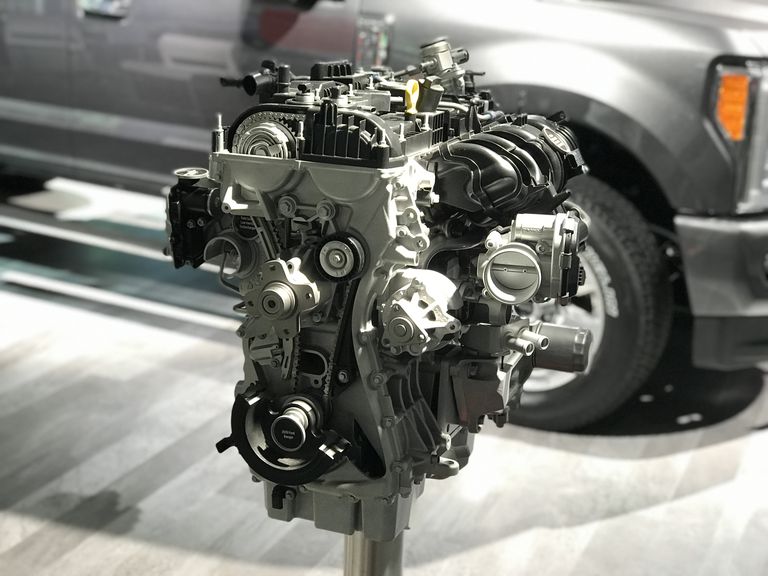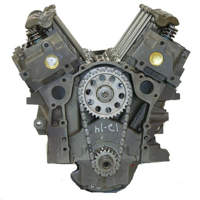How to Maintain and Optimize the 2.2 Ford Ranger Engine for Long-Lasting Performance
What Makes a Cars And Truck Engine Run Efficiently: Top Tips for Optimal Treatment
The smooth procedure of a car engine is fundamental to both performance and longevity, making optimum treatment a crucial obligation for car owners. What details steps should you prioritize to guarantee your engine continues to be in peak condition?
Regular Oil Modifications
One of one of the most vital facets of vehicle upkeep is ensuring your engine gets normal oil adjustments. Engine oil lubes interior components, reduces rubbing, and helps keep ideal operating temperatures. With time, oil weakens as a result of warmth, contaminants, and the all-natural byproducts of burning, causing reduced effectiveness and possible engine damages.
Most makers recommend changing the oil every 5,000 to 7,500 miles, however this interval can differ based upon driving conditions and oil type. Artificial oils might permit for longer intervals between adjustments. Regular oil modifications not just enhance engine efficiency but additionally improve gas effectiveness, as tidy oil advertises smoother procedure.
Ignoring oil adjustments can result in sludge accumulation, which hinders flow and can lead to extreme engine problems. It is essential to examine oil degrees consistently and keep an eye on for any kind of unusual modifications in shade or consistency, which could suggest contamination or destruction.

Keeping Coolant Levels
Keeping proper coolant levels is vital for protecting against engine overheating and making sure optimal performance. The coolant, usually a mixture of water and antifreeze, flows with the engine, soaking up warmth and avoiding thermal anxiety. Not enough coolant can bring about increased engine temperature levels, which may cause extreme damages or also overall engine failure.
To keep optimal coolant levels, frequently check the coolant tank, normally found in the engine bay. Guarantee the coolant is loaded to the advised mark, as suggested in your car's owner manual. It is recommended to check the levels at the very least once a month or soon journeys, particularly during extreme weather problems.
If you observe that the coolant degree is regularly low, there may be a leak in the air conditioning system, which must be dealt with quickly to stop additional issues. 2.2 ford ranger engine. Additionally, purging the coolant system every 2 to 3 years can help eliminate any collected particles and make certain efficient warm exchange
Monitoring Air Filters

It is recommended to inspect the air filter every 12,000 to 15,000 miles, or more regularly if driving in negative or dirty problems. An easy aesthetic evaluation can typically disclose whether the filter is dirty or damaged. It must be changed without delay. if the filter appears blemished or has visible dirt build-up.
Using a high-quality air filter created for your details lorry design can better boost engine performance. Additionally, some automobiles might gain from multiple-use filters that can be cleansed and re-installed, giving a environmentally friendly and affordable choice.
Inspecting Spark Plugs
Ignition system are important elements of a lorry's ignition system, straight impacting engine efficiency and effectiveness. They produce the stimulate that ignites the air-fuel blend in the combustion chamber, promoting the engine's power generation. Routine examination of stimulate plugs is basics critical for maintaining optimum engine blog function and protecting against potential issues.
Throughout an assessment, seek indicators of wear or damage, such as cracks, carbon buildup, or excessive gap widening. A healthy ignition system usually exhibits a light brown or tan shade. Dark soot or oil deposits can suggest inappropriate combustion, while a white or blistered look may recommend overheating. Both conditions need prompt interest to stop additional engine damages.
It's a good idea to evaluate ignition system every 30,000 miles, or as recommended in your automobile's proprietor handbook. In addition, take into consideration changing them according to the producer's guidelines, as old or used spark plugs can lead to misfires, minimized fuel performance, and enhanced exhausts.
Surveillance Tire Pressure
Making sure correct tire pressure is a critical aspect of automobile safety and security and performance. Under-inflated tires can bring about additional reading lowered gas efficiency, raised tire wear, and endangered handling. Conversely, over-inflated tires can reduce grip and increase the risk of blowouts. For that reason, routine tracking of tire pressure is essential for optimum automobile operation.
Tire stress must be checked at the very least when a month and soon trips. Utilize a trustworthy tire stress gauge to gauge the pressure when the tires are chilly, ideally before the vehicle has been driven for at least three hours. Describe the car's owner handbook or the placard located on the vehicle driver's side door jamb for the producer's recommended pressure degrees.
It is essential to keep in mind that tire stress can vary with adjustments in temperature; a decrease of 10 ° F can lead to a 1-2 psi decline in pressure. Furthermore, aesthetically check tires for any indicators of wear or damage throughout your tracking regimen. Maintaining appropriate tire pressure not just improves vehicle security yet additionally improves fuel performance and extends tire life, ultimately contributing to a smoother engine efficiency.
Verdict
In conclusion, preserving an auto engine's smooth operation needs diligent attention to a number of vital elements. Eventually, a proactive method to engine treatment is crucial for guaranteeing dependability and capability over time.
One of the most essential elements of auto upkeep is ensuring your engine receives routine oil modifications. Engine oil lubes inner parts, reduces friction, and assists preserve ideal operating temperature levels. Normal oil changes not only improve engine performance however likewise improve fuel effectiveness, as tidy oil advertises smoother procedure.
Inadequate coolant can lead to raised engine temperature levels, which might cause severe damage or even total engine failure.
